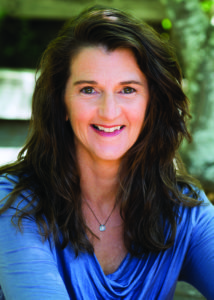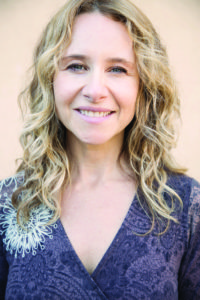By Flora Tsapovsky
What does it really take to stay intimate with a partner and continue to enjoy your own sexuality? How does one address boredom, thoughts of an open relationship, regular date nights and physical activity to aid sexuality? And what about online dating? Could that get any worse? The answers don’t get any simpler, no matter how sophisticated our Fitbit gets, or how helpful our new Nest system becomes. Questions about love and sex are timeless, ever-present and surprisingly innovation-resistant; open any relationship book from previous decades, and you’ll find the same concerns, hesitations and worries (minus the internet aspect, perhaps). Hence, these questions are making the job of a sex and relationship coach one that’s always in demand.
Both Dr. Namita Caen, DHS, who specializes in somatic sex intimacy and relationship coaching, and Dr. Claudia Six, a clinical sexologist and relationship coach with an M.A. in Counseling Psychology and a Ph.D. in Clinical Sexology, are such experts, living and working in Marin County. Dr. Caen, who was born in the U.K., deals with relational and physical aspects of sexuality, often turning to tantra and somatic coaching. She works in Mill Valley and speaks four languages, including the stereotypically sexy French. Dr. Six, whose work often resembles that of a classic therapist with a sexual twist, works in San Rafael and has written a book, Erotic Integrity: How to be True to Yourself Sexually, published in May of 2016. Both women have more than 40 years of experience combined, and plenty of insight about love, sex and intimacy.
Offering two very different approaches to counseling, the women were open to our request when we inquired about relationships, sexuality and that pesky ‘spark’—just in time for Valentine’s Day, but also looking at the year ahead. Below is what they had to say.
Flora Tsapovsky: What’s the biggest difference between men and women when it comes to sex in a monogamous relationship?
Dr. Claudia Six: “There’s a saying: ‘Women need to feel good to have sex. Men need to have sex to feel good.’ That’s a big difference that can cause friction and distance between a heterosexual couple who may not be on the same page. A lot of my work with clients is to help them breach that divide.”
Dr. Namita Caen: “We are all uniquely wired, but if I had to generalize, I would say that on the whole within a heterosexual monogamous relationship, men are often more sexually oriented, typically have a higher sex drive and tend to find monogamy more challenging and restrictive than women. At the same time, within the heterosexual monogamous model, women are viewed as more emotionally oriented and seeking a more attached connection with their partners. Women may often have a lower libido than their male partners and are less likely to look for sexual experiences outside the relationship. That being said, it’s important to remember that these are generalizations and that there are plenty of men and women that don’t fit these findings.”
Tsapovsky: How does one really, truly deal with the boredom of monogamy?
Dr. Six: “I don’t think there’s any such thing as sexual boredom, and I devote a whole chapter of my book to this. Boredom is the canary in the coal mine of relationships: It’s an indication that something is wrong. People tend to experience ‘boredom’ when uncomfortable feelings are bubbling up to the surface, when they have been complacent, when they don’t want to take a risk and be vulnerable and bring up what is true for them. So they stuff it, play it safe, brush it under the carpet, but it festers and erodes eroticism in a relationship.”
Dr. Caen: “Sustained interest in our partners requires a certain degree of sexual tension and the mystery of not always knowing every little detail about your partner. Too much routine and familiarity, and too little adventure and mystery breeds boredom. Keeping the passion alive may require taking time apart and having the opportunity to miss each other every so often, thereby creating space for longing and desire for one another. Missing each other builds healthy sexual tension, and maintaining a little sexual mystery avoids the sexual depressant ‘more roommates than lovers’ syndrome.”
Tsapovsky: What’s your strongest advice to couples who want to try an ‘open relationship,’ experimenting with other people? Does it ever work?
Dr. Six: “Most people who engage in non-monogamy, open relationship, polyamory, whatever term you want to use, are misguided. That is, they’re doing it out of emptiness rather than fullness. They don’t know how to create more of what they want in their primary relationship, so it’s easier to do the fun, sexy stuff with a shiny new partner than roll up your sleeves and clean up your relationship with the partner you take the garbage out with. To successfully do open relationships you need to have a lot of agreements about things.”
Dr. Caen: “Opening up a relationship is a very individual choice and there are infinite ways of going about it. My strongest advice to couples is to make sure that their relationship is in a really good place, based on a solid, healthy foundation of love and trust before inviting others in. Some of the most important skills needed in open relationships, and in fact in any relationship, are excellent communication, healthy boundaries, empathy and the ability to collaborate and negotiate. It’s an ongoing process of checking in and honoring the needs and feelings of everyone involved.”
Tsapovsky: Many people complain about the mechanical, un-intimate pattern of online dating. Is there a way to break the mold and get to better, deeper ‘first dates’ in this new reality?
Dr. Six: “If you keep it superficial on the first couple of dates, the other person has every reason to believe that this is the level of communication you will maintain, which can be pretty uninspiring. You set the tone.

If you interact on a level that is authentic and has some depth, you might find it rewarding. And I recommend not spending much time with emails or phone calls. You don’t really know about a person until you sit down across from them, exchange eye contact, hear their voice and notice your experience of yourself in their presence.”
Dr. Caen: “Define the purpose of your dating: What type of partner, relationship or experience are you looking for? What are your deal-breakers? The clearer you are with yourself about your boundaries and motivations, the better you will be able to present yourself and screen candidates for a first date. Representing yourself as honestly as possible without embellishing, exaggerating, trying to impress or pretending you are someone different from who you really are will help you attract the right matches and have a more authentic date. Preparing some interesting questions ahead of time that you can pepper throughout the date without it sounding like an interview may help you deepen the quality of your conversation. Finally, being genuinely curious about your date, asking deeper questions, noticing their body language, verbal and nonverbal cues and letting go of expectations will contribute to having a richer first date experience.”
Tsapovsky: How would you describe an individual who’s fully in touch with their own sexuality?
Dr. Six: “For a start, they’re totally comfortable in their body, and seem happily settled into it, relaxed. An individual who is fully in touch with their sexuality is in erotic integrity—that is they have self-examined and truly know who they are as an erotic being. They accept their sexuality, whatever it looks like, and they express it authentically. They don’t lie or pretend to be something they’re not, and they engage their desires unabashedly.”
Dr. Caen: “Being in touch with our sexuality is a journey that ebbs and flows throughout the course of our lives. There will be times when we feel deeply in touch with it and other times when we won’t feel it much at all. However, nurturing that connection deepens it. Some practices that can help us foster a healthy,

positive relationship with our sexuality are: Developing a positive body image, being comfortable naked, discovering what turns you on, asking for what you want sexually, letting go of sexual shame and conditioning, exploring healthy sexual touch and intimacy with ourselves and with our partner, feeling embodied through dance, movement, yoga and meditation.”
Tsapovsky: What role can sports, yoga and other seemingly non-sex-related practices stimulate sexuality? How does one make these everyday activities useful in a sexual sense?
Dr. Six: “Any kind of physical activity will get you out of your head. And you can’t have successful sex if you’re in your head and not in your body. So whether it’s solitary or as a couple, it will support your love life, from tai chi to skydiving. Taking dance lessons can sound romantic, though all the power and control issues pop up in that context. If you can navigate them successfully, it can lead to wonderful physical contact that can be foreplay for a sexier event, for years to come.”
Dr. Caen: “Sexuality is about being embodied and experiencing pleasure. Exercise such as sports and yoga helps us maintain a healthy lifestyle and activates our feel-good endorphin hormones. These activities help us get out of our busy minds and into our bodies.”
Tsapovsky: Finally, any tips and tricks to keep a healthy, loving marriage sexy and playful?
Dr. Six: “Have dates! I know it seems like couples therapy 101, but it’s true: You can’t maintain a relationship without regular and consistent dates, especially if you have kids! Pay attention, appreciate each other and say so. It doesn’t sound sexy, but it’s the foundation to a solid couple, and sexy and playful grows from that.”
Dr. Caen: “It’s often the small things done on a consistent basis that make the biggest difference in keeping a relationship sexy and playful. Morning coffee together before work, scheduling a regular date night, making time for intimacy, connecting about the highlights of your day, being generous with your partner in the bedroom and finally, keeping an element of mystery by taking time apart, building anticipation and giving yourselves the opportunity to miss, long for and desire each other.”
Learn more about Dr. Six at drsix.net, and more about Dr. Caen at sexandintimacycoaching.com.







[…] Here’s a link to the full article. […]